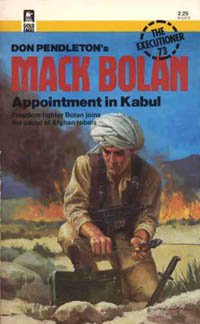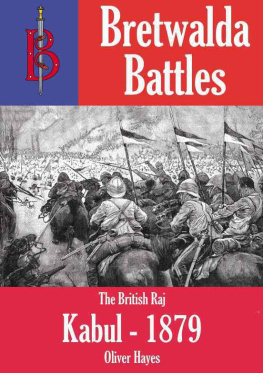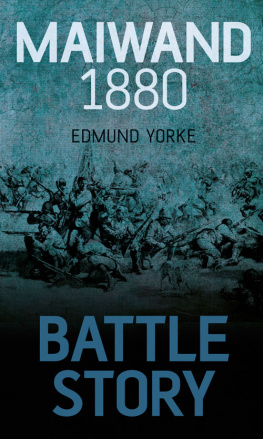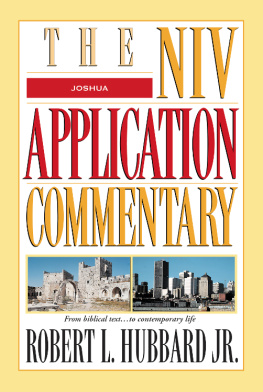This edition is published by BORODINO BOOKS www.pp-publishing.com
To join our mailing list for new titles or for issues with our books borodinobooks@gmail.com
Or on Facebook
Text originally published in 1883 under the same title.
Borodino Books 2017, all rights reserved. No part of this publication may be reproduced, stored in a retrieval system or transmitted by any means, electrical, mechanical or otherwise without the written permission of the copyright holder.
Publishers Note
Although in most cases we have retained the Authors original spelling and grammar to authentically reproduce the work of the Author and the original intent of such material, some additional notes and clarifications have been added for the modern readers benefit.
We have also made every effort to include all maps and illustrations of the original edition the limitations of formatting do not allow of including larger maps, we will upload as many of these maps as possible.
RECOLLECTIONS OF THE KABUL CAMPAIGN, 1879 & 1880
BY
JOSHUA DUKE,
BENGAL MEDICAL SERVICE; FELLOW ROYAL ASIATIC SOCIETY
DEDICATION
TO
THE MEMORY
OF
TWO BRAVE SOLDIERS,
LIEUT.-COLONEL BROWNLOW, C.B., COMMANDING 72 ND HIGHLANDERS,
KILLED IN ACTION, SEPTEMBER 1 ST , 1880, AT THE BATTLE OF KANDAHAR,
AND
BREVET-MAJOR JOHN COOK, V.C., 5 TH GOORKHAS, PUNJAB FRONTIER FORCE,
MORTALLY WOUNDED ON THE TABHT-I-SHAH HEIGHT, KABUL, DECEMBER 12 TH , 1879.
Far off sepulchred in such pomp they lie,
That kings for such a tomb might wish to die.
LIST OF ILLUSTRATIONS.
Portrait of Gen. Sir Frederick Sleigh Roberts, V.C., G.C.B.
The Slopes of Mount Sika Ram, 15,600 feet, from an original drawing by Lieut.-Colonel H. C. B. Tanner, Bengal Staff Corps
Sherpur Cantonment, 1879
Capture of Takht-i-Shah, by 92 nd Highlanders and Corps of Guides
The Attack on the Conical Hill, 14 th December 1879
Sketch of N.W. corner of Sherpur Cantonment
The N.E. Corner and E. Side of Sherpur
Sketch of Ditch, Outer Wall, and Bastion, Sherpur Cantonment
Map showing approximately places mentioned around Cabul.
Numbers 4, 7, and 8 have been drawn by Mr. Lionel Jacob, from photographs taken by No. 7 Company of Sappers and Miners at Kabul. Numbers 8, 5, and 6 have also been partly drawn from photographs by the same company of Sappers and Miners.
PREFACE.
THE narrative contained in this unpretending volume is a brief description of places and facts that have come before the notice of the Author while serving as a medical officer with three branches of our native army in India, viz. mountain-artillery, cavalry, and infantry, and for a short time with General Robertss Staff, during the Afghan campaign of 1879 and 1880.
The original notes were written during the winter and summer of 1881 in the inhospitable region of Gilgit, Cashmere territory, the extreme limit of civilisation beyond our Northern. Frontier, and without any opportunity of referring to official and other documents; though the manuscript was not completed until after the Authors return to Amritsar, a civil station in the Punjab.
Before submitting this book to the public, I despatched the greater portion of the proofs, roughly bound up, to General Sir Frederick Roberts, V.C., G.C.B., now Commander-in-Chief of the Madras Army, by whose courtesy I am permitted to publish the annexed letter :
It must always be difficult, if not impossible, for a subordinate officer with an army in the field to know the reasons why this thing or that thing is done or left undone.
A commander is necessarily guided by a combination of circumstances, all of which he must carefully weigh and consider, and few of which can, at the time at any rate, be made public.
The general observer can only judge by results, and very possibly may never be in a position to become acquainted with the causes which led to these results.
I never expect, therefore, to find a strictly accurate account of the campaign in Afghanistan written, until the time comes for the historian to have access to the many papers and documents which are in the possession of myself and others, who were the principal actors in the war.
At the same time I think you have formed very correct conclusions on some of the most important points. I allude particularly to the deductions you have drawn regarding the attack on the Embassy, and your remarks about Yakub Khans conduct during the advance on Kabul. Yakub Khans object was to prevent our entering his country. He knew that he had made no attempt to save the lives of Sir Louis Cavagnari and his brave companions, even if he had not been mainly accessory to their murder, and he felt that he would be found out once we were at Kabul.
In the hopes of stopping us he sent the Mustaufi (quite the ablest man in Afghanistan) and his Wazeer, Shah Mahomed, to meet me at Ali Khel. They endeavoured by every kind of argument to induce me to delay my movements.
Finding that his ministers were unsuccessful, Yakub Khan came himself to meet me at Kushi, and did all he could to make me retrace my steps, or stay where I was.
As soon as he found that my plans were not to be changed, he sent emissaries in every direction to raise the Ghilzais and other tribes. I was fortunately not deceived by him, and did what little I could to get to our side those people whom I understood not to be altogether loyal to the Amir. I did not put much faith in their promises of neutrality or assistance; but I thought it probable that so long as I pushed on, and was successful, some of them at least would not openly oppose me.
My great difficulty was want of transport; but knowing well what was going on all around me, and feeling quite certain that Yakub Khan was acting a treacherous part, I determined to get possession of Kabul with the least possible delay. Had I not done so, or had there been the slightest repulse, we should have had to encounter as powerful a combination as two months later necessitated our retiring within Sherpur.
Large bodies of men had responded to Yakub Khans call, and were hurrying from all directions towards Kabul. Numbers of these, as some of them afterwards admitted to me, were turned back by the fugitives from Charasiab.
When the Kabul War broke out in 1878, the Author was on sick-leave in England. Anxious to see service, and hoping that his regiment, then quartered very close to the scene of operations, might be sent forward, he applied for leave to appear before a medical board. The board permitted his return to India, and January 1879 found him once more at the station of Bannu, on the Punjab frontier, somewhat to his own disappointment, for the war was practically over. In the month of March he was ordered to proceed to Thull, the point where his story commences.
EASTBOURNE,
March 2 nd , 1883.
RECOLLECTIONS OF THE KABUL CAMPAIGN, 1879 & 1880.








